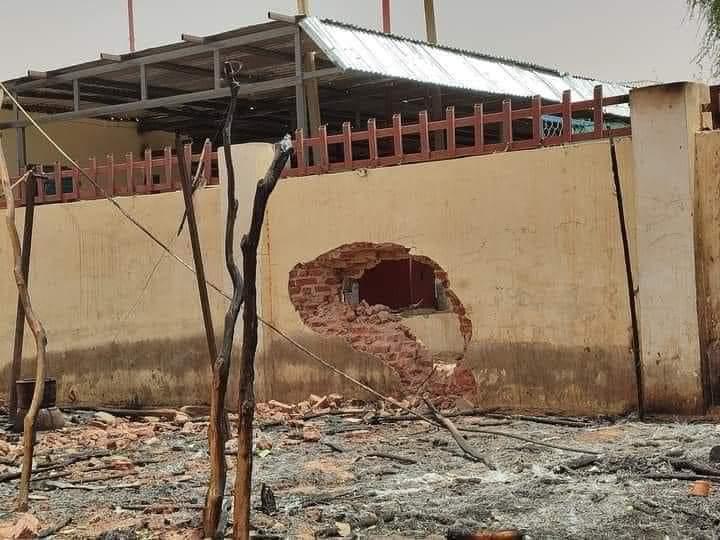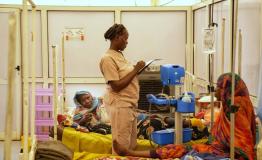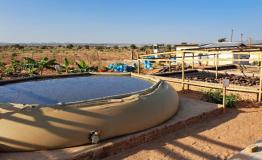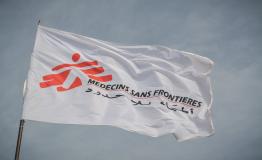Nairobi, Wednesday 14 August – As the fighting escalates in El Fasher once more, its impact on the lives of civilians is becoming increasingly devastating, warns Médecins Sans Frontières (MSF). Multiple attacks on the city have taken place over the past week and since Saturday, at least 15 people have been killed, more than 130 have been injured, and yet another attack on the MSF-supported Saudi hospital – the last remaining public hospital in the city with the capacity to treat the wounded and perform surgery – has occurred, causing extensive damage and leaving the facility only partially functioning.
The attack took place on Sunday 11 August, marking the 11th time a hospital in El Fasher has been hit since the fighting escalated on May 10. The surgical ward was hit during the bombardment, killing the carer of a patient and injuring five others, while the maternity unit was also damaged. In addition, a number of hospital offices were hit, and a nurse sustained injuries while working inside.
Sunday’s attack on Saudi hospital – which is the largest hospital in North Darfur state – makes it crystal clear that the warring parties are making no efforts to protect health facilities or the civilians inside them. Patients fear for their lives as a result of the relentless attacks.Michel Olivier Lacharité, head of MSF’s emergency operations
Already, Saudi hospital had been inundated with wounded people following heavy fighting on Saturday 10 August. Over 100 people arrived at the facility that day, and 14 passed away from their injuries. At the same time, 15 casualties were brought from El Fasher to MSF’s facilities in Zamzam camp. It is expected that the fighting will become even more intense over the coming days.
“For more than three months, people in El Fasher have been under constant bombardment. Shelling from both sides has impacted on the city resulting in over 2,500 casualties arriving at MSF-supported hospitals and more than 370 of these patients passing away from their injuries. The number of victims of the conflict is unknown,” says Michel Olivier Lacharité, head of MSF’s emergency operations. “Sunday’s attack on Saudi hospital – which is the largest hospital in North Darfur state – makes it crystal clear that the warring parties are making no efforts to protect health facilities or the civilians inside them. Patients fear for their lives as a result of the relentless attacks.
“People are moving to Zamzam to flee the fighting in El Fasher, but those already in the camp also fear for their lives – Zamzam was hit by shelling just one week ago and there are very real fears that this will happen again. We are preparing to receive more casualties in Zamzam – especially as the fighting in El Fasher means that people cannot easily reach Saudi hospital. However, our field hospital has been built to treat children with malnutrition and paediatric diseases – it is not currently set up to treat the wounded. There is no operating theatre and no blood bank, which means our team will be under exceptional pressure if casualties continue to arrive. Additionally, people in the camp are already facing life-threatening issues of their own.
MSF raised the alarm about the catastrophic malnutrition crisis there over six months ago, and now the Famine Review Committee has declared a state of famine in the camp. We urge the warring parties to let humanitarian supplies pass through without being obstructed, and we also urge them to protect civilians and health structures. Saudi is the last remaining public hospital in North Darfur with the capacity to effectively treat the wounded. If it, or our facilities in Zamzam, are hit again and become non-functional, there will be nowhere left for the injured to seek care and the death toll will soar.”



